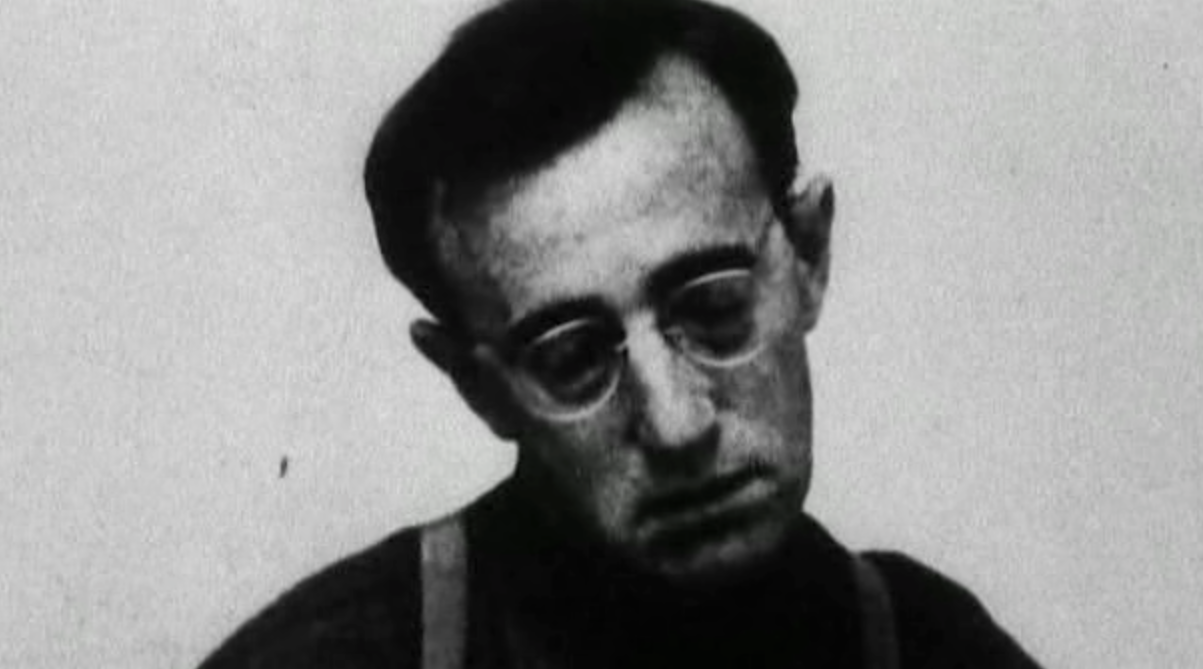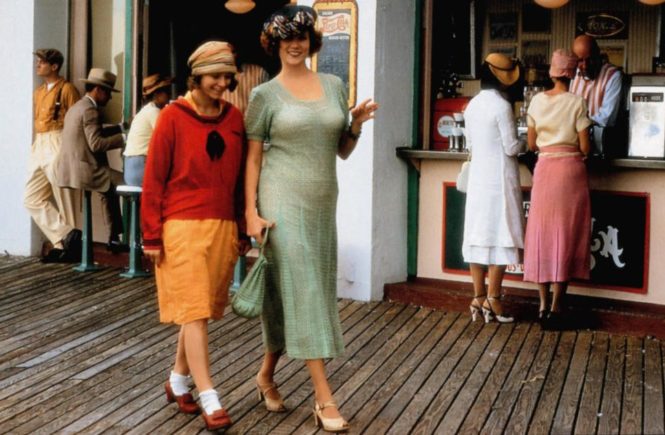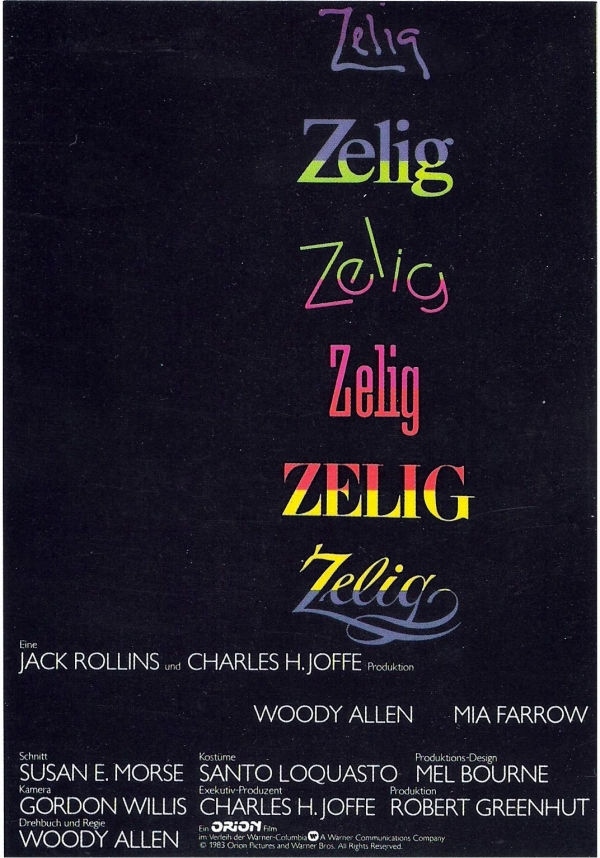
Zelig is not one of Woody Allen’s most recognised films, but it is one of his very best. Perhaps it’s the strange title, or the pseudo documentary format. It’s certainly a far cry from his witty, neurotic, New York comedies. But it is touching, funny, clever and a spectacular special effects ride. For anyone else this is a career defining film.
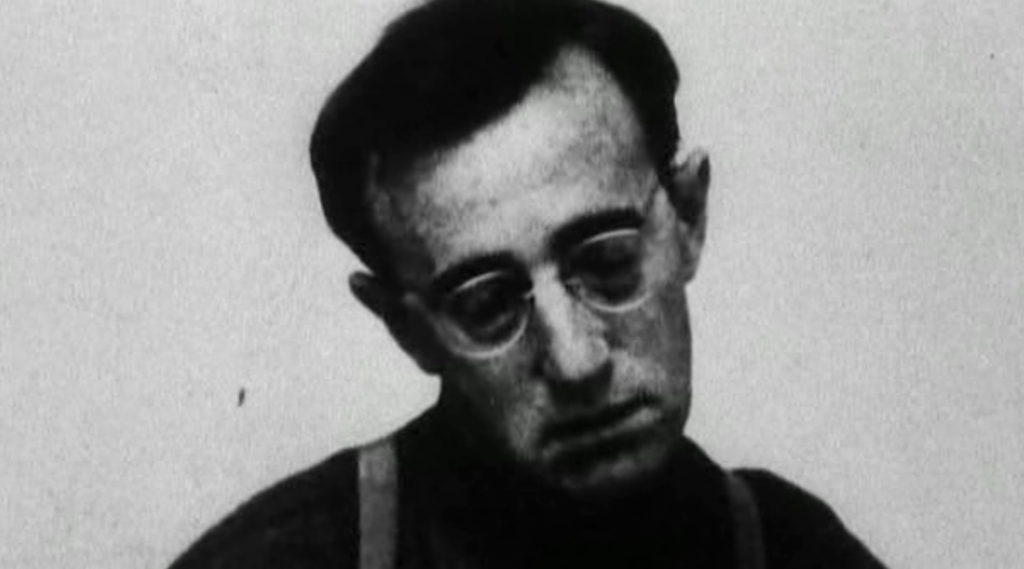
Woody Allen stars as Leonard Zelig – the human chalmeleon. This film is presented as documentary on his life in the 20s, this strange man who could take on the characteristics of the people around him. He is studied as a scientific curiosity, and forms close ties with one of his doctors, Dr Eudora Fletcher, played by Mia Farrow.
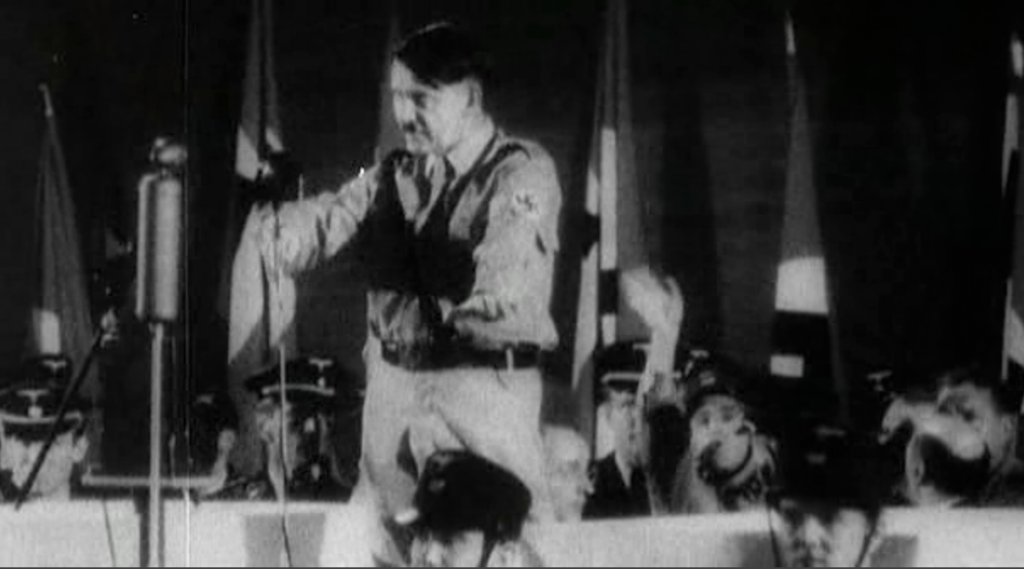
The most notable delight of the film is the special effects. Allen, working with Gordon Willis, us every trick in the book to make Zelig appear throughout history – from news stories to early super 8 style. Decades before photoshop, Zelig appears in dozens of photos from the past, flawlessly. Great make up and even better sets bring it all home. Even today, the film is a flawless technical achievement.
But the films delights go deeper than the surface. We meet Zelig as a curiosity, almost a circus freak. He’s a man who takes on what’s around him, and we meet him as a man who has no personality of his own. But what we eventually find is a man so eager to fit in, and so scared of rejection, that his physical body changes.
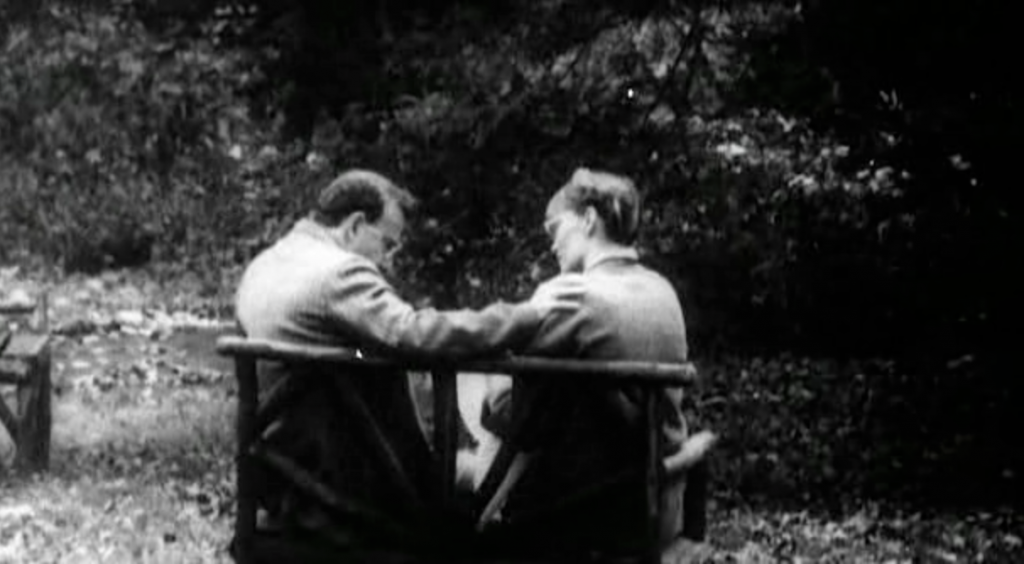
What does it mean to fit in? And how do we do it? Those universal questions play on Zelig. Should he be reading Moby Dick to fit in, or watch baseball and appear stupid? It’s a great question. And in the end it is the love of one woman who saves him, not the adoration of millions. It’s as moving a love story as anything Allen has ever done.
Drama aside, it’s also funny. Allen’s sense of the absurd is never lost – such as thh KKK’s reaction (he’s a triple threat). Having a character that can be anyone allows Allen to pepper the script with plenty of great lines. There’s also a few film jokes, such as Zelig walking up a wall. It’s a silly world, but in it is love.
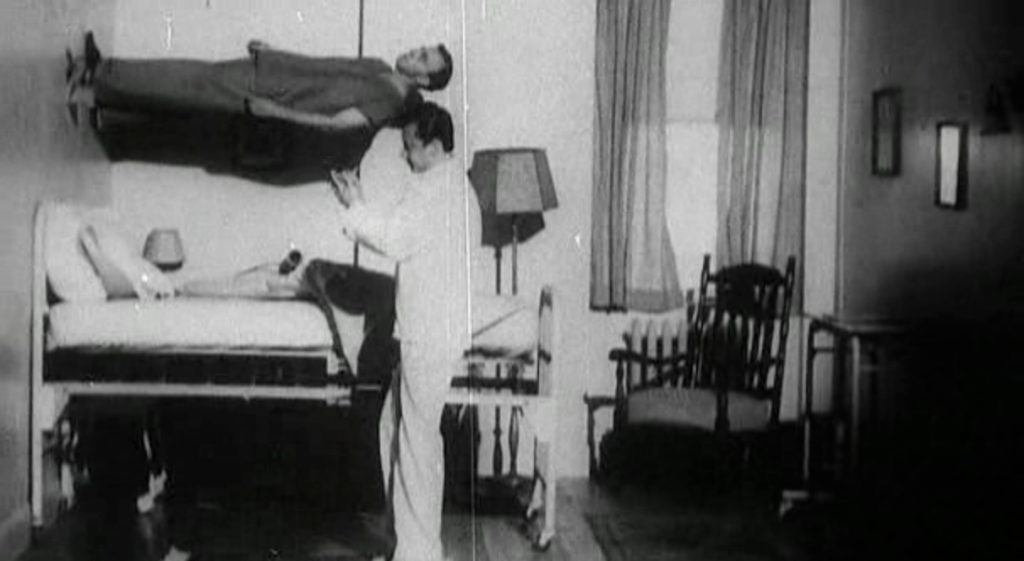
There’s not much acting in this film. We are still yet to see Farrow’s greatness. Allen tells a couple of jokes. All the talking heads are wonderful and natural. But it’s a scriptwriting and film editing exersize – which could be part of why it’s not one of his most popular. But it has all the heart and loveliness of Allen’s best work. And it flips on it’s head Allen’s favourite themes – nostalgia, celebrity, absudity, love and cinema itself.
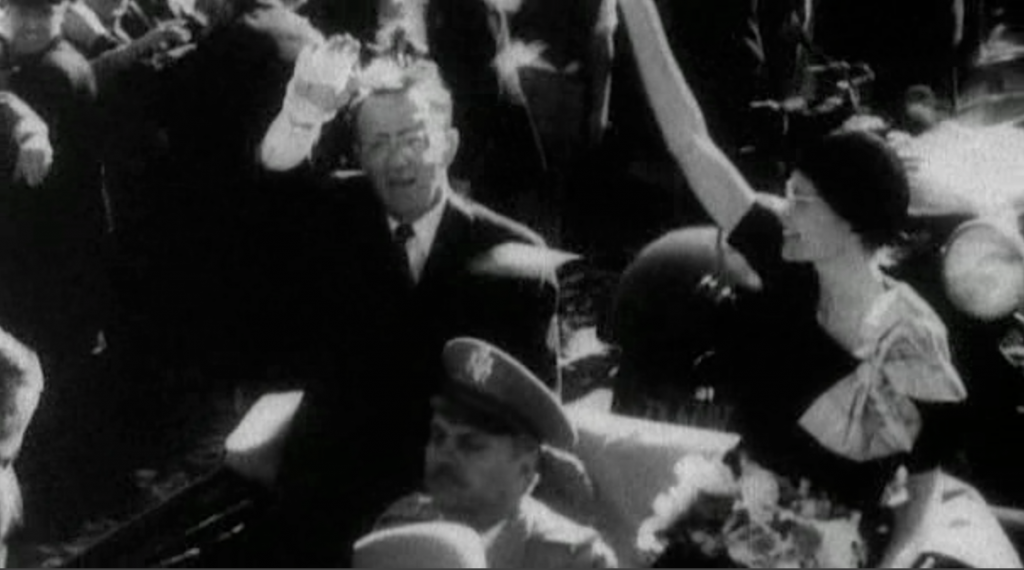
It’s Allen’s shortest film – and most labor intensive. In the time it took the film to be out together, Allen started and finished A Midsummer’s Night Sex Comedy and wrapped production on Broadway Danny Rose. He would never spend that much time on one film ever again and it’s a shame. And following Manhattan with Stardust Memories and this, it might have led to a very different career for Allen.
Luckily it did not, because this is another winner in a long line of winners. The 80s was Allen’s most productive, acclaimed and experimental period. And in that period, ‘Zelig‘ is perhaps his most accomplished work.

